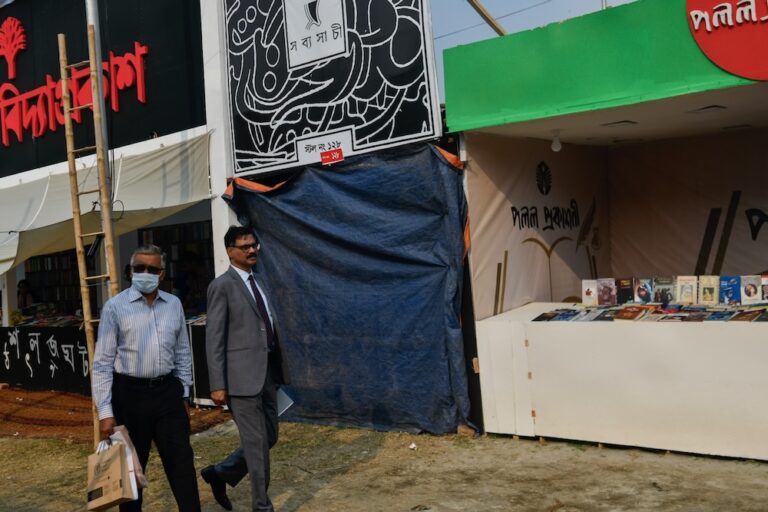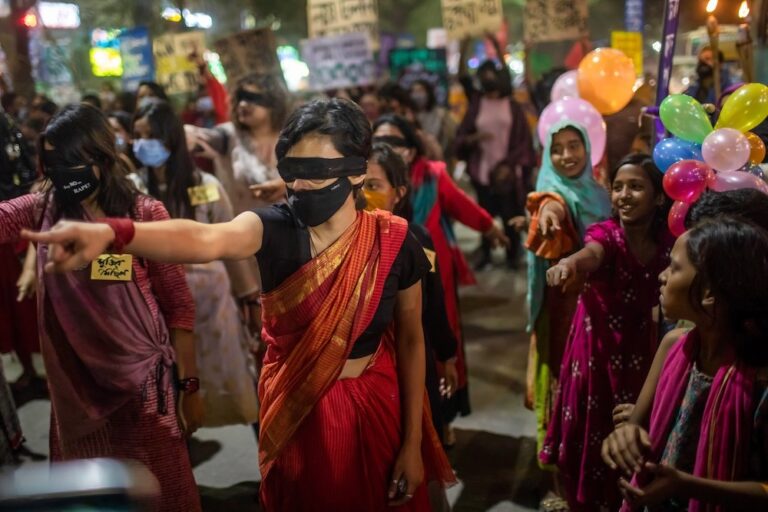(RSF/IFEX) – RSF has protested the government’s closure of Bangladesh’s leading television station, Ekushey Television (ETV), just one hour after the Supreme Court upheld the withdrawal of its licence on 29 August 2002. “The intransigence and haste of the authorities responsible for implementing this judicial decision seems to have been an act of revenge against […]
(RSF/IFEX) – RSF has protested the government’s closure of Bangladesh’s leading television station, Ekushey Television (ETV), just one hour after the Supreme Court upheld the withdrawal of its licence on 29 August 2002.
“The intransigence and haste of the authorities responsible for implementing this judicial decision seems to have been an act of revenge against an overly independent television station,” RSF Secretary-General Robert Ménard said in a letter to Information Minister Tariqul Islam.
In his letter, Ménard noted that just a few months ago, an RSF investigative report had hailed recent progress made by Bangladesh toward radio and television plurality. “Today, ETV’s disappearance is a dramatic backward step for viewers in Bangladesh,” he said. Ménard urged the minister to find a way to allow ETV to continue broadcasting until it obtains a new licence under last year’s telecommunications law.
Technicians at state-owned Bangladesh Television cut off ETV’s broadcasts within one hour of the Supreme Court’s decision to reject ETV’s appeal and confirm the cancellation of its licence. Hundreds of people, including performers and human rights activists, had gathered outside the court in a show of solidarity with ETV.
The Supreme Court’s decision upholds the Dhaka High Court’s 27 March decision cancelling ETV’s licence, on the grounds that it had obtained it under “illegal conditions” from the previous government of the Awami League, which is now in opposition. This decision was issued in response to a suit filed by two university students and a journalist close to the ruling Bangladesh Nationalist Party (BNP).
ETV’s lawyers had appealed against the High Court’s decision before the Supreme Court, which had in turn rejected the appeal. As a result, ETV’s lawyers had again appealed to the Supreme Court, asking that it reconsider its own decision. This appeal was rejected on 29 August, leaving no further legal recourse available to ETV.
ETV obtained its licence in 1998, becoming the country’s leading private news station. It had drawn a large audience thanks to a variety of programming that broke with the state-owned television’s monotonous, pro-government style of broadcasting.


